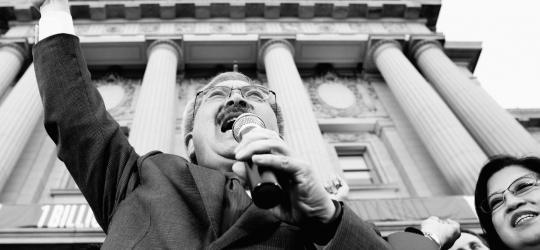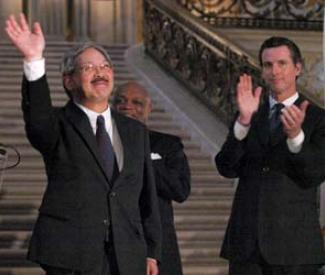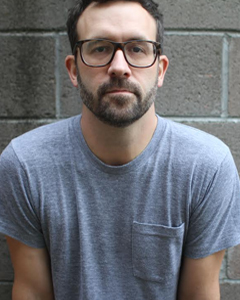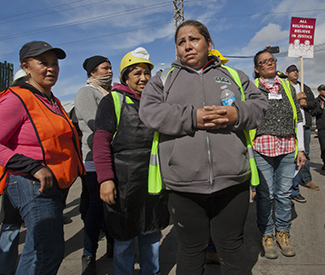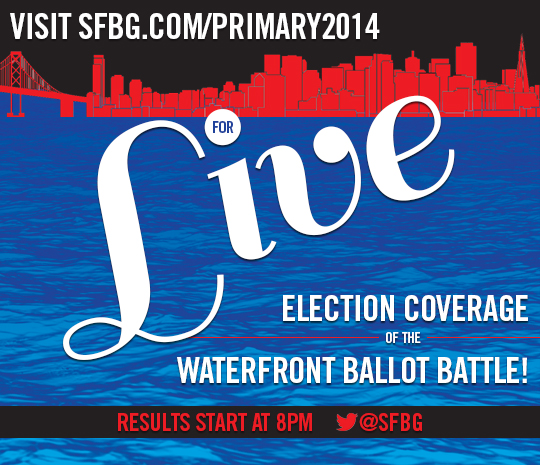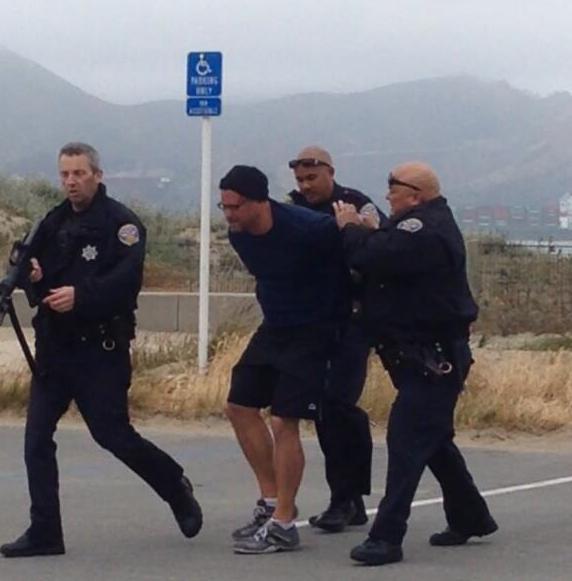We all want to be responsible for our environment. We sort our trash. We put the right things into the right containers, and feel good when we see them at the curb on trash pickup day.
Then the trash disappears. End of story.
But really, it’s not the end. Not only does the trash go somewhere, but people still have to sort through what we’ve thrown away. In a society full of people doing work that’s unacknowledged, and often out of sight, those who deal with our recycled trash are some of the most invisible of all.
Sorting trash is dangerous and dirty work. In 2012 two East Bay workers were killed in recycling facilities. With some notable exceptions, putting your hands into fast moving conveyor belts filled with cardboard and cans does not pay well — much less, for instance, than the jobs of the drivers who pick up the containers at the curb. And the sorting is done almost entirely by women of color; in the Bay Area, they are mostly immigrants from Mexico and Central America, as well as some African Americans.
This spring, one group of recycling workers, probably those with the worst conditions of all, finally had enough. Their effort to attain higher wages, particularly after many were fired for their immigration status, began to pull back recycling’s cloak of invisibility. Not only did they become visible activists in a growing movement of East Bay recycling workers, but their protests galvanized public action to stop the firings of undocumented workers.
ILLEGAL WAGES FOR “TEMPORARY” WORKERS
Alameda County Industries occupies two big, nondescript buildings at the end of a cul-de-sac in a San Leandro industrial park. Garbage trucks with recycled trash pull in every minute, dumping their fragrant loads gathered on routes in Livermore, Alameda, and San Leandro. These cities contract with ACI to process the trash. In the Bay Area, only one city, Berkeley, picks up its own garbage. All the rest sign contracts with private companies. Even Berkeley contracts recycling to an independent sorter.
At ACI, the company contracts out its own sorting work. A temp agency, Select Staffing, hires and employs the workers on the lines. As at most temp agencies, this means sorters have no health insurance, no vacations, and no holidays. It also means wages are very low, even for recycling. After a small raise two years ago, sorters began earning $8.30 per hour during the day shift, and $8.50 at night.
Last winter, workers discovered this was an illegal wage.
Because ACI has a contract with the city of San Leandro to process its recycling, it is covered by the city’s Living Wage Ordinance, passed in 2007. Under that law, as of July 2013: “Covered businesses are required to pay no less than $14.17 per hour or $12.67 with health benefits valued at least $1.50 per hour, subject to annual CPI [consumer price index] adjustment.”
There is no union for recycling workers at ACI, but last fall some of the women on the lines got a leaflet advertising a health and safety training workshop for recycling workers, put on by Local 6 of the International Longshore and Warehouse Union. There, they met the union’s organizing director, Agustin Ramirez. “Sorting trash is not a clean or easy job anywhere,” he recalls, “but what they described was shocking. And when they told me what they were paid, I knew something was very wrong.”
Ramirez put them in touch with a lawyer. In January, the lawyer sent ACI and Select a letter stating workers’ intention to file suit to reclaim the unpaid wages. ACI has about 70 sorters. At 2,000 work hours per year each, and a potential discrepancy of almost $6 per hour, that adds up to a lot of money in back wages.
The response by ACI and Select was quick. In early February, 18 workers — including all but one who’d signed onto the initial suit — were called into the Select office. They were told the company had been audited by the Immigration and Customs Enforcement agency of the Department of Homeland Security a year before, and that ICE had questioned their immigration status. Unless they could provide a good Social Security number and valid work authorization within a few days, they’d be terminated.
Instead of quietly disappearing, though, about half the sorters walked off the lines on Feb. 27, protesting the impending firings and asking for more time from the company and ICE. Faith leaders and members of Alameda County United for Immigrant Rights joined them in front of the ACI office. Workers came from other recycling facilities. Jack in the Box workers, some of whom were fired after last fall’s fast-food strikes, marched down the cul-de-sac carrying their banner of the East Bay Organizing Committee. Even San Leandro City Councilman Jim Prola showed up.
“The company told us they’d fire anyone who walked out,” said sorter Ignacia Garcia. But after a confrontation at the gate, with trucks full of recycled trash backed up for a block, Select and ACI managers agreed the strikers could return to work the following day. The next week, however, all 18 accused of being undocumented were fired. “Some of us have been there 14 years, so why now?” wondered Garcia.
In the weeks that followed, East Bay churches, which earlier called ICE to try to stop the firings, collected more than $6,500 to pay rent for nine families. According to Rev. Deborah Lee, director of the Interfaith Coalition for Immigrant Rights, “after they had a chance to meet the fired workers and hear their stories, their hearts went out to these hardworking workers and parents, who had no warning, and no safety net.” Money is still coming in, she says.
ONE OF MANY BATTLES
Because cities give contracts for recycling services, they indirectly control how much money is available for workers’ wages. But a lot depends on the contractor. San Francisco workers have the gold standard. Recology, whose garbage contract is written into the city charter, has a labor contract with the Teamsters Union. Under it, workers on its recycle lines are guaranteed to earn $21 an hour.
Across the bay, wages are much lower.
ACI is one battle among many taking place among recycling workers concerning low wages. In 1998, Ramirez and the ILWU began organizing sorters. That year 70 workers struck California Waste Solutions, which received a contract for half of Oakland’s recycling in 1992. As at ACI, workers were motivated by a living wage ordinance. At the time, Oakland mandated $8 an hour plus $2.40 for health insurance. Workers were only paid $6, and the city had failed to monitor the company for seven years, until the strike.
Finally, the walkout was settled for increases that eventually brought CWS into compliance. During the conflict, however, it became public (through the Bay Guardian in particular) that Councilman Larry Reid had a financial interest in the business, and that CWS owner David Duong was contributing thousands of dollars in city election races.
Waste Management, Inc., holds the Oakland city garbage contract. While garbage haulers have been Teamster members for decades, when Waste Management took over Oakland’s recycling contract in 1991 it signed an agreement with ILWU Local 6. Here too workers faced immigration raids. In 1998, sorters at Waste Management’s San Leandro facility staged a wildcat work stoppage over safety issues, occupying the company’s lunchroom. Three weeks later immigration agents showed up, audited company records, and eventually deported eight of them. And last year another three workers were fired from Waste Management, accused of not having legal immigration status.
Today Waste Management sorters are paid $12.50 under the ILWU contract — more than ACI, but a long way from the hourly wage Recology pays in San Francisco. Furthermore, the union contracts with both CWS and Waste Management expired almost two years ago. The union hasn’t signed new ones, because workers are tired of the second-class wage standard.
To increase wages, union recycling workers in the East Bay organized a coalition to establish a new standard — not just for wages, but safety and working conditions — called the Campaign for Sustainable Recycling. Two dozen organizations belong to it in addition to the union, including the Sierra Club, the Global Alliance for Incinerator Alternatives, Movement Generation, the Justice and Ecology Project, the East Bay Alliance for a Sustainable Economy, and the Faith Alliance for a Moral Economy.
ILWU researcher Amy Willis points out, “San Francisco, with a $21 wage, charges garbage rates to customers of $34 a month. East Bay recyclers pay half that wage, but East Bay ratepayers still pay $28-30 for garbage, recycling included. So where’s the money going? Not to the workers, clearly.”
Fremont became the test for the campaign’s strategy of forcing cities to mandate wage increases. Last December the Fremont City Council passed a 32-cent rate increase with the condition that its recycler, BLT, agree to provide raises. The union contract there now mandates $14.59 per hour for sorters in 2014, finally reaching $20.94 in 2019. Oakland has followed, requiring wage increases for sorters as part of the new recycling contract that’s currently up for bid.
Good news for those still working. But even for people currently on the job, and certainly for the 18 workers fired at ACI, raising wages only addresses part of the problem. Even more important is the ability to keep working and earn that paycheck.
CRIMINALIZING IMMIGRANT WORKERS
When ACI and Select told workers they’d be fired if they couldn’t produce good Social Security numbers and proof of legal immigration status, they were only “obeying the law.” Since 1986, U.S. immigration law has prohibited employers from hiring undocumented workers. Yet according to the Pew Hispanic Trust, 11-12 million people without papers live in the U.S. — and not only do the vast majority of them work, they have to work as a matter of survival. Without papers people can’t collect unemployment benefits, family assistance or almost any other public benefit.
To enforce the law, all job applicants must fill out an I-9 form, provide a Social Security number and show the employer two pieces of ID. Since 1986 immigration authorities have audited the I-9 forms in company personnel records to find workers with bad Social Security numbers or other ID problems. Immigration and Customs Enforcement (ICE) then sends the employer a letter, demanding that it fire those workers.
According to ICE, last year the agency audited over 2,000 employers, and similar numbers in previous years. One of the biggest mass firings took place in San Francisco in 2010, when 475 janitors cleaning office buildings for ABM Industries lost their jobs. Olga Miranda, president of Service Employees Local 87, the city’s janitors union, charges: “You cannot kill a family quicker than by taking away their right to find employment. The I-9 audits, the workplace raids, E-Verify, make workers fear to speak out against injustices, that because of their immigration status they have no standing in this country. They have criminalized immigrants. They have dehumanized them.”
One fired janitor, Teresa Mina, said at the time, “This law is very unjust. We’re doing jobs that are heavy and dirty, to help our children have a better life, or just to eat. Now my children won’t have what they need.”
Similar I-9 audits have taken place in the past two years at the Pacific Steel foundry in Berkeley, at Silicon Valley cafeterias run by Bon Appetit, at South Bay building contractor Albanese Construction, and at the Dobake bakery, where workers prepare food for many Bay Area schools. All are union employers.
Sometimes the audits take place where workers have no union, but are protesting wages and conditions. Like the ACI workers, in 2006 employees at the Woodfin Suites hotel in Emeryville asked their employer to raise their wages to comply with the city’s living wage ordinance. Twenty-one housekeepers were then fired for not having papers. Emeryville finally collected over $100,000 in back pay on their behalf, but the workers were never able to return to their jobs.
Last fall, as fast-food workers around the country were demanding $15 an hour, several were fired at an Oakland Jack in the Box for being undocumented. “They knew that when they hired us,” said Diana Rivera. “I don’t believe working is a crime. What we’re doing is something normal — we’re not hurting anyone.” The Mi Pueblo Mexican market chain also fired many workers in an immigration audit, during a union organizing drive.
Because the audits are not public, no exact total of the number of workers fired is available. ICE spokesperson Virginia Kice would not comment on the audit at ACI. In response to an information request, she stated: “To avoid negatively impacting the reputation of law-abiding businesses, we do not release information or confirm an audit unless the investigation results in a fine or the filing of criminal charges.” Neither ACI nor Select Staffing responded to requests for comment.
San Francisco became a leader in opposing the firings in January, when the Board of Supervisors passed unanimously a resolution calling on the Obama administration to implement a moratorium on the audits and on deportations. Other cities, like Los Angeles, have also opposed deportations, but San Francisco added: “End the firings of undocumented workers by ending the I-9 audits and the use of the E-Verify system.”
Gordon Mar, of Jobs with Justice, urged the board to act at a rally in front of City Hall. “When hundreds of workers are fired from their jobs,” he declared, “the damage is felt far beyond the workers themselves. Many communities have voiced their opposition to these ‘silent raids’ because they hurt everyone. Making it a crime to work drives people into poverty, and drives down workplace standards for all people.” Like many Bay Area progressive immigrant rights activists, Mar calls for repealing the section of immigration law that prohibits the undocumented from working.
The Board of Supervisors urged President Obama to change the way immigration law is enforced, in part because Congress has failed to pass immigration reform that would protect immigrants’ rights. The Senate did pass a bill a year ago, but although it might eventually bring legal status to some of the undocumented, other provisions would increase firings and deportations.
Like the Board of Supervisors, therefore, the California Legislature has also passed measures that took effect Jan. 1, to ameliorate the consequences of workplace immigration enforcement: AB 263, AB 524, and SB 666. Retaliation is now illegal against workers who complain they are owed unpaid wages, or who testify about an employer’s violation of a statute or regulation. Employers can have their business licenses suspended if they threaten to report the immigration status of workers who exercise their rights. Lawyers who do so can be disbarred. And threats to report immigration status can be considered extortion.
It’s too early to know how effective these new measures will be in protecting workers like the 18 who were fired at ACI. While a memorandum of understanding between ICE and the Department of Labor bars audits or other enforcement actions in retaliation for enforcing wage and hour laws, ICE routinely denies it engages in such retaliation.
Yet, as difficult as their situation is, the fired recyclers don’t seem to regret having filed the suit and standing up for their rights. Meanwhile, the actions by the cities of Oakland and Fremont hold out the promise of a better standard of living for those still laboring on the lines.



